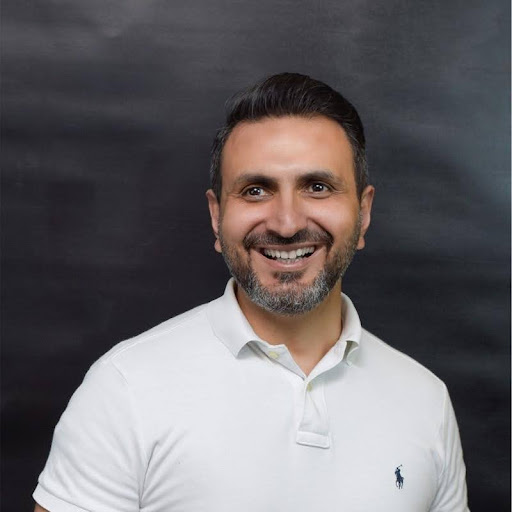In the heart of Pakistan’s digital transformation, where startups rise, infrastructures evolve, and emerging tech reshapes business norms, one figure stands out as both a practitioner and a visionary Umair Javed. As the founder and CEO of Tkxel, a global software engineering and digital solutions company, Umair has spent more than a decade not only building a business but helping shape the architecture of Pakistan’s tech ecosystem.
From bootstrapping in a university lab to being recognized by Inc. 5000 as one of America’s fastest-growing private companies, Tkxel’s story mirrors Pakistan’s own digital aspirations: full of grit, vision, and the desire to create global relevance through local innovation.
We sat down with Umair for a wide-ranging conversation on AI adoption, innovation strategy, people-first leadership, and what it takes to build enduring impact in a rapidly evolving digital world.
Q: Umair, while many countries are racing ahead with AI integration, Pakistan’s progress seems promising but uneven. From your perspective, what are the most fundamental barriers preventing organizations from moving beyond AI pilots to full-scale, value-driven deployment?
The biggest barrier is not technology it’s mindset and structure. Many organizations jump into AI without understanding what problem they’re solving. They get excited about the buzz but skip the groundwork. The three most common issues I see are weak data infrastructure, unclear objectives, and internal silos. You can’t layer AI on top of broken systems and expect results.
Also, there’s often a disconnect between decision-makers and technical teams. Executives want outcomes, but teams don’t always have the support or direction to deliver them. At Tkxel, when we advise clients, we insist on starting small to identify one high-impact use case, such as automating sales outreach or onboarding processes. Once you prove value, you build trust and internal buy-in for larger initiatives. AI adoption is not a leap. It’s a structured, iterative journey.
Q: Over the last decade, you’ve played the roles of entrepreneur, investor, and ecosystem builder. How do you view the evolution of Pakistan’s tech landscape—from the early days of Tkxel to now mentoring and backing startups? What progress stands out, and where are the structural gaps that remain?
When we started Tkxel in 2008, the idea of building a global software company out of Pakistan felt far-fetched. We had limited access to capital, mentorship, or even exposure to international markets. Today, that’s changed significantly. We have a stronger startup culture, more investor interest, and growing government awareness around tech.
What’s still missing is a structured ecosystem that supports startups post-acceleration. Founders struggle with scaling because they lack access to mature leadership, international networks, and consistent funding. Many promising ventures plateau after MVP. We need more structured mentorship, stronger academia-industry linkages, and regulatory support to go from building products to building companies.
Q: Based on your experience with over 200 SMBs in the past year, what frameworks or mental models do you suggest for founders and CIOs to turn AI experimentation into operational transformation?
I always advise clients to approach AI through the lens of value chains, not tech stacks. The key question is: where in your workflow does intelligence create the most value? Then solve that problem in a narrow, high-leverage way. For example, if your sales team spends hours researching leads and writing outreach messages, train an AI model to automate that. That’s 75 percent of the SDR workflow optimized. That’s real ROI.
Q: You’ve also balanced operational leadership with teaching at LUMS and hosting the BetterTech podcast. How have these roles influenced your leadership philosophy and your perspective on tech’s future in Pakistan?
Teaching keeps me humble and connected. It reminds me that leadership is about investing in people, not just strategy. When you teach, you’re forced to simplify complex ideas and truly listen. That’s helped me become a better communicator and a better CEO.
With the podcast, I’ve had the privilege of talking to tech leaders from around the world. It broadens your horizon. You realize that Pakistan doesn’t lack talent—we lack structured exposure. That’s what I try to bridge in all my roles. Whether through content, curriculum, or consulting, I want to create access points for learning and inspiration.
Q: Many young professionals in Pakistan remain risk-averse, often preferring secure jobs over entrepreneurial ventures. How do you coach founders to embrace risk and overcome fear of failure, especially in a culture that can be harsh on setbacks?
That’s a very real issue. Our culture still equates failure with incompetence. We need to shift that narrative to failure as a process of learning.
I tell young founders that failure is not just likely it’s necessary. At Tkxel, our early years were full of mistakes. Wrong hires. Bad partnerships. Missed deals. But each setback made us sharper. What matters is how fast you recover and what you learn.
You also have to create psychological safety within your teams. Celebrate experimentation. Normalise pivoting. And build support systems mentors, peers, and advisors who remind you that you’re not alone.
Q: You’ve emphasized people-first leadership throughout your journey. In a market where talent is becoming increasingly global and remote, how do you retain top people and keep them aligned with your mission?
At Tkxel, we focus a lot on creating ownership. Every employee understands how their work contributes to the larger mission. We invest in their growth, give them space to innovate, and reward transparency.
Retention is about alignment. If people feel they’re growing, heard, and part of something meaningful, they stay. We’ve had engineers who joined us as interns and are now leading international projects. That kind of loyalty doesn’t come from perks. It comes from purpose.
Q: Finally, looking five to ten years ahead, what is your vision for Tkxel and Pakistan’s role in the global tech ecosystem?
I want Tkxel to go deeper in emerging markets, in impact sectors like health, education, and climate, and deeper in our commitment to building ethical, inclusive AI.
For Pakistan, my vision is to move from being an outsourcing hub to an innovation hub. We have brains. We have hunger. Now we need structure, capital, and long-term thinking.
I believe the future belongs to those who can merge deep tech with deep empathy. That’s how we’ll build not just profitable companies, but a future worth living in.







